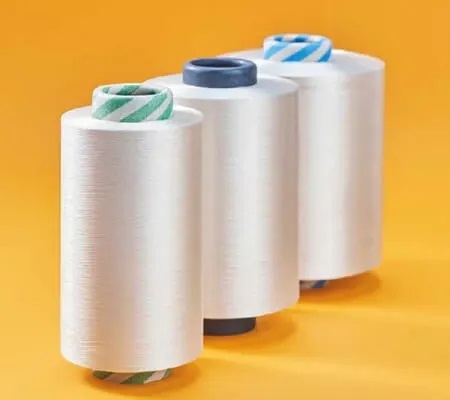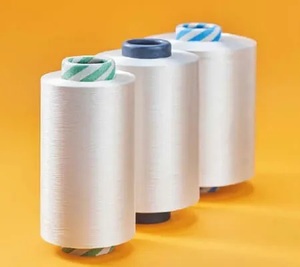Blog Information
- Posted By : Yuvraj Singh
- Posted On : Nov 21, 2024
- Views : 41
- Category : General
- Description : In this article, we explore how viscose yarn and its manufacturers are making strides toward a more sustainable future for textiles, with a special focus on viscose filament yarn and its growing importance in India.
- Location : India
Overview
- As the fashion industry and textile sector grapple with the growing need for sustainability, many brands and manufacturers are turning to eco-friendly materials that align with green goals. Among these, viscose yarn has emerged as a frontrunner. Produced from natural materials such as wood pulp, viscose is an increasingly popular alternative to synthetic fibers. In this article, we explore how viscose yarn and its manufacturers are making strides toward a more sustainable future for textiles, with a special focus on viscose filament yarn and its growing importance in India.

The Rise of Sustainable Textiles
Sustainability is no longer a buzzword but a pressing necessity for the textile and fashion industries. The environmental impact of synthetic fibers, such as polyester and nylon, which are derived from petroleum, has been a major concern for years. As consumer demand for eco-friendly options grows, manufacturers are pivoting towards more sustainable solutions. Natural fibers like cotton, linen, and wool have always been preferred for their biodegradability and minimal environmental footprint.
Viscose, often referred to as artificial silk, is a semi-synthetic fiber made from natural cellulose found in wood pulp. Although it requires a chemical process to turn the pulp into fibers, it is a renewable resource that, when managed responsibly, can be far less damaging than synthetic alternatives. Viscose is biodegradable, lightweight, and versatile, which makes it an attractive option for sustainable textile production.
Viscose Yarn: A Step Toward Eco-Friendly Fabrics
Viscose yarn is spun from viscose fibers and is used to create a variety of fabrics, from soft blouses to luxurious dresses. It’s also utilized in blends, improving the texture and performance of textiles. One of the significant advantages of viscose yarn is its smooth and silky feel, which gives garments a comfortable, luxurious touch. But beyond aesthetics, it also has an environmental appeal.
Viscose yarn aligns with green goals due to its sustainable sourcing and manufacturing processes. The yarn is made from wood pulp derived from trees such as beech, eucalyptus, and pine. When sourced responsibly, the production of viscose yarn can be highly sustainable. Notably, viscose filament yarn, produced in a continuous filament form, offers additional benefits. It is known for its strength, durability, and sheen, making it suitable for a wide range of textile applications, from high-fashion garments to home textiles.
The Role of Viscose Filament Yarn Manufacturers in India
India has become one of the most significant players in the global textile industry, with a growing number of viscose filament yarn manufacturers. The country is home to some of the best viscose yarn manufacturers, who are increasingly adopting environmentally responsible practices in their operations.
India's contribution to sustainable textile production is immense. Several viscose filament yarn manufacturers in India are making considerable strides to meet the growing demand for eco-friendly fabrics. Brands like Raysil, a prominent viscose yarn manufacturer in India, are committed to producing high-quality viscose yarn while ensuring that their production processes are in line with environmental and social sustainability.
Raysil, for instance, has embraced the use of responsibly sourced raw materials and is dedicated to minimizing its carbon footprint. By focusing on cleaner production techniques, the brand aims to reduce water and energy consumption during the manufacturing process. They also use eco-friendly dyes and finishes to create viscose yarn that is not only sustainable but also meets global quality standards.
How Viscose Yarn Supports Green Goals
- Biodegradability: One of the primary advantages of viscose yarn is its biodegradability. Unlike synthetic fibers, which can take hundreds of years to decompose, viscose yarn breaks down naturally, reducing the overall environmental impact of textile waste.
- Renewable Resources: Viscose is made from wood pulp, a renewable resource. Sustainable forestry practices ensure that the raw materials used in the production of viscose yarn come from managed forests, which can regenerate and maintain biodiversity.
- Eco-Friendly Manufacturing: Advances in production technologies have led to improvements in the environmental impact of viscose yarn. Closed-loop systems, where chemicals used in the manufacturing process are recycled and reused, have significantly reduced pollution and waste in viscose production.
- Water and Energy Efficiency: Modern viscose filament yarn manufacturers in India have implemented processes that aim to reduce water and energy consumption. This contributes to the sustainable production of viscose yarn and supports global efforts to combat climate change.
- Circular Economy: Viscose yarn can also contribute to a circular economy model. Because it is biodegradable, used textiles made from viscose yarn can be composted or recycled. This reduces the burden on landfills and encourages the reuse of materials in new textile products.
Challenges and Opportunities for Viscose Yarn Manufacturers in India
While the benefits of viscose yarn are clear, the textile industry still faces challenges when it comes to sustainability. The production of viscose yarn has traditionally been associated with chemical pollution, deforestation, and high water consumption. However, as awareness grows, companies are addressing these issues head-on. Manufacturers in India, including those producing viscose filament yarn, are investing in cleaner technologies and more responsible sourcing of raw materials.One of the key opportunities lies in the increasing consumer demand for transparency and sustainability. Companies like Raysil are in a prime position to meet these demands by offering eco-friendly, high-quality viscose yarn. As the Indian textile industry continues to modernize and innovate, it is poised to become a global leader in sustainable yarn production.
Conclusion
Viscose yarn is an integral part of the textile industry's shift towards sustainability. With its biodegradable properties, renewable sourcing, and growing adoption of eco-friendly manufacturing processes, it offers a greener alternative to traditional synthetic fibers. Manufacturers, especially viscose filament yarn manufacturers in India like Raysil, are playing a critical role in advancing the global shift toward sustainable textiles.
As the demand for sustainable fashion and textiles continues to rise, viscose yarn will undoubtedly remain a key player in the effort to create a more eco-conscious and responsible textile industry. By supporting these green initiatives, consumers can contribute to a more sustainable future while still enjoying high-quality, fashionable fabrics.
